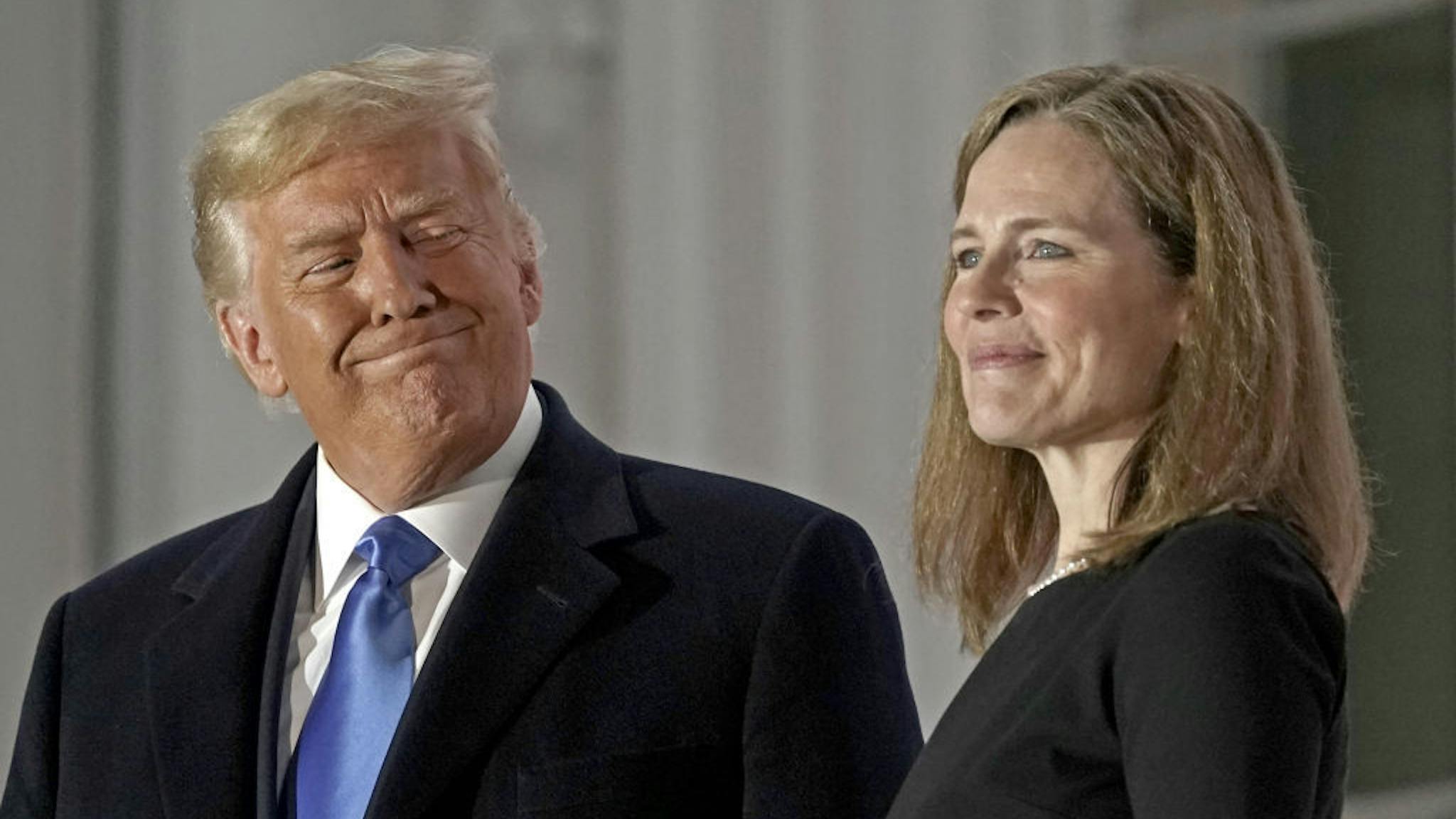The recent confirmation of President Trump-appointed Justice Amy Coney Barrett has resulted in its first significant Supreme Court outcome, and it relates to the first protected liberty specified in the Bill of Rights: the free exercise of religion.
In a 5-4 ruling late Wednesday night, the Supreme Court backed a religious challenge to Democratic New York Gov. Andrew Cuomo’s restrictions limiting attendance at religious services. The majority ruling blocks enforcement of the restrictions while the applicants pursue appellate review. The ruling highlights the lack of evidence that the applicants — the Roman Catholic Diocese of Brooklyn, two Jewish synagogues, and an Orthodox Jewish organization — have contributed to the spread of the virus and questions the rationale of the specifics of Cuomo’s restrictions, which limited services to just 10 and 25 occupants for red and orange zones, respectively.
“Not only is there no evidence that the applicants have contributed to the spread of COVID–19 but there are many other less restrictive rules that could be adopted to minimize the risk to those attending religious services,” the decision reads. “Among other things, the maximum attendance at a religious service could be tied to the size of the church or synagogue. Almost all of the 26 Diocese churches immediately affected by the Executive Order can seat at least 500 people, about 14 can accommodate at least 700, and 2 can seat over 1,000. Similarly, Agudath Israel of Kew Garden Hills can seat up to 400. It is hard to believe that admitting more than 10 people to a 1,000–seat church or 400–seat synagogue would create a more serious health risk than the many other activities that the State allows.”
“Members of this Court are not public health experts, and we should respect the judgment of those with special expertise and responsibility in this area,” the ruling asserts. “But even in a pandemic, the Constitution cannot be put away and forgotten. The restrictions at issue here, by effectively barring many from attending religious services, strike at the very heart of the First Amendment’s guarantee of religious liberty. Before allowing this to occur, we have a duty to conduct a serious examination of the need for such a drastic measure.”
“The applicants have made the showing needed to obtain relief, and there is no reason why they should bear the risk of suffering further irreparable harm in the event of another reclassification,” the ruling concludes. “For these reasons, we hold that enforcement of the Governor’s severe restrictions on the applicants’ religious services must be enjoined.”
In his concurring opinion, Justice Neil Gorsuch, the first of Trump’s three Supreme Court appointments, writes, “Government is not free to disregard the First Amendment in times of crisis. At a minimum, that Amendment prohibits government officials from treating religious exercises worse than comparable secular activities, unless they are pursuing a compelling interest and using the least restrictive means available. … Yet recently, during the COVID pandemic, certain States seem to have ignored these long-settled principles. Today’s case supplies just the latest example.”
“It is time — past time — to make plain that, while the pandemic poses many grave challenges, there is no world in which the Constitution tolerates color-coded executive edicts that reopen liquor stores and bike shops but shutter churches, synagogues and mosques,” he concludes.
Justice Brett Kavanaugh, Trump’s second appointee, concurs, concluding: “On this record, the applicants have shown: a likelihood that the Court would grant certiorari and reverse; irreparable harm; and that the equities favor injunctive relief. I therefore vote to grant the applications for temporary injunctive relief until the Court of Appeals in December, and then this Court as appropriate, can more fully consider the merits.”
Notably, Chief Justice John G. Roberts Jr. joined in dissent with the three progressive members of the Court. “I would not grant injunctive relief under the present circumstances,” his dissent begins. “There is simply no need to do so. After the Diocese and Agudath Israel filed their applications, the Governor revised the designations of the affected areas. None of the houses of worship identified in the applications is now subject to any fixed numerical restrictions. At these locations, the applicants can hold services with up to 50% of capacity, which is at least as favorable as the relief they currently seek.”
The majority ruling rejects Roberts’ and the three liberal judges’ argument that the matter is moot because the circumstances have changed, contending: “The dissenting opinions argue that we should withhold relief because the relevant circumstances have now changed. After the applicants asked this Court for relief, the Governor reclassified the areas in question from orange to yellow, and this change means that the applicants may hold services at 50% of their maximum occupancy. The dis- sents would deny relief at this time but allow the Diocese and Agudath Israel to renew their requests if this recent reclassification is reversed. There is no justification for that proposed course of action. It is clear that this matter is not moot.”
As noted by The New York Times, Supreme Court’s ruling is “at odds” with its previous rulings concerning church attendance restrictions in California and Nevada, delivered in May and July, respectively, in which the court declined to back similar challenges. Justice Barrett was confirmed by the Senate on Oct. 26 in a 52-48 vote.

